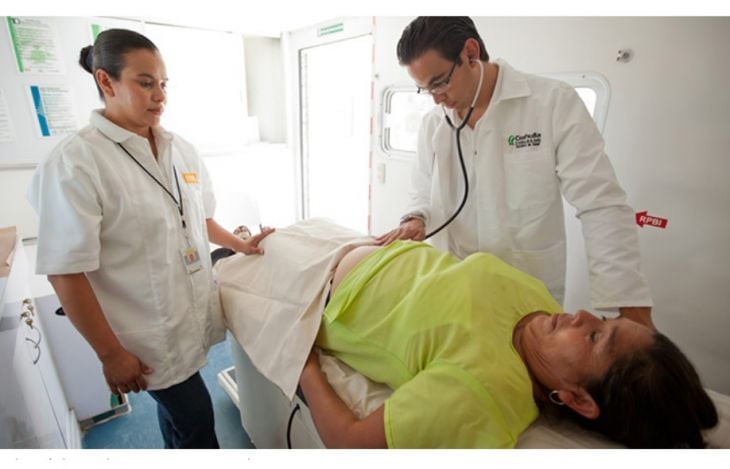President Andrés Manuel López Obrador yesterday reaffirmed his commitment to achieving universal and quality health coverage, a goal which, he said, was hampered by difficulties in hiring medical personnel. After attributing these complications to the neglect of training work over the last six years and the reluctance of doctors to fill vacant positions, the president insisted that to guarantee “medical attention 24 hours a day, seven days, week, week”, options such as bringing in doctors from other countries and offering pay raises to citizens “to keep them entertained” are analysed.
It is a subject of debate whether or not, in purely numerical terms, Mexico has a sufficient number of health professionals to care for its population. For the World Health Organization (WHO), our 241 doctors per 100,000 population is slightly above the minimum threshold of 230 per 100,000, while the Organization for Economic Cooperation and Development (OECD) puts us in a marked deficit with respect to recommended levels. 320 per 100,000.
However, the figures hide dramatic and even tragic regional differences: according to the Ministry of Health, 40 percent of the 135,000 certified specialists are concentrated in the State of Mexico and the nation’s capital, in contrast to most of the Region: In the middle of the year, there is not a single pediatrician who care for 2.4 million children in Huasteca, La Montaña, and the Papaloapan-Olmeca region of Veracruz, a scenario repeated in the state of Guerrero. These differences stand despite efforts by the current federal administration to correct the gaps. For example, 47 percent of calling apps launched last May are concentrated in four states (Mexico City, Jalisco, Puebla, and State of Mexico), but not a single doctor has raised their hand to occupy any of the 9,000 725 posts. in 3,339 cities with less than 200,000 inhabitants, rural areas and indigenous peoples.
Also read: Mexico opened a call for 749 foreign medical specialists
The data presented carries a clear moral: no investment (no matter how important) in training GPs, specialists, technicians, and nursing staff will result in relief for the health system as long as the disdain for these professionals to go to the clinic persists. .the areas whose existence is most urgent. Doctors and their union organizations cite the insecurity crisis that grips most of the country as the reason why they refuse to work outside the big cities, but it is clear that this factor does not explain the structural problem. This is demonstrated by the fact that the UK public health system is facing a catastrophic reduction in the number of dentists for one reason only: they migrate to the private sector to increase their income.
From what we can see, we are facing an invasion of mercantilist logic in the medical profession: the choice of career itself, the specialization to follow and the place of work are usually determined predominantly, if not uniquely, by financial considerations. This problem is rooted in teaching, with educational centers being the first representatives of an ethical change that promotes personal gain in all aspects; the search is not where to serve, but where to prosper.
Overturning this deviation of medicine is a long-term task that requires, it is true, to provide decent conditions for the practice of the profession in the public sector, but above all to transmit to students and new technicians and professionals the intrinsic nobility. trade and the danger of reducing them to mere instruments of amassing personal wealth.
Do not miss: This Monday AMLO will sign the IMSS/Welfare agreement for the benefit of Campeche
[email protected]
Editing: Emilio Gomez

“Internet trailblazer. Troublemaker. Passionate alcohol lover. Beer advocate. Zombie ninja.”







